Mark Amery – 9 January, 2013
His picks for 2012
There’s the peril as art writer of dealing in generalisations and assumptions in aid of trying to put the mysterious into words. Indeed, just this week I’ve discovered (via Facebook) that in 2012 I made the heinously incorrect assumption in a Dominion Post piece that Fiona Pardington’s recent, stunning still lives involved Photoshop. How stupid of me. I just got so carried away by the idea that modern technology might actually being put to some genuine beautiful use. Wrist slap dutifully executed.
Nothing’s more likely to involve sweeping generalisations, glaring omissions, and the simplification of the complexity of perception than the bottling down of things to best of end of year lists.
And yet, it matters to open up discussion and record things. Our words are hopefully as useful as they are unreliable. So I’m going to swing right in there but with a focus on what I didn’t get to write about in 2012. A quick scan of what I did for EyeContact and Dominion Post will provide the other part of the story. Here are the thoughts that got away.
It never ceased to bug me when visiting how loaded with potential the new Auckland Art Gallery building is as an active social cultural space, and yet how desperately it largely clings onto old conservative exhibition models. Not to mention the boxing of both contemporary art and the collections. After all that physical remodeling we should expect them to be leading the way experientially. I expected more contemporary life in that beautiful cavernous foyer. Perhaps I’ve been there at the wrong times, but there are such opportunities for public institutions to reflect the changing needs of society.
The issues with the AAG’s Home AKL exhibition of Pacific art have been dealt with by Daniel M. Satele excellently elsewhere here and in Art New Zealand. I need not linger on the fact that when a gallery director at an opening states an exhibition is ‘long overdue’ that’s an understatement.
Yet, from my viewing in recent years contemporary Pacific art (to give it a box it should shimmy out of just as quickly) is as exciting as our art currently gets. Home AKL squeezed in plenty of great examples. The opportunity for Auckland Art Gallery to integrate and lead here with faster changing exhibits, rather than treat it as some ‘other’ is enormous. That it should be doing even more so with Maori art is as obvious as it is lamentable. That they might better reflect the strong presence of Asia in the city’s bloodstream? We can do far better at leading with our distinctiveness as well as our internationalism. In Wellington, Reuben Friend continues to lead from the back with excellent curation of the small Deane Gallery at City Gallery Wellington.
On another Auckland note, I wish I’d got to write at length on Cushla Donaldson’s excellent Feminine Touches at Ferari (and the general pleasing social novelty of a gallery running from a double garage in Grey Lynn). It was one of the more interesting solo showings I saw all year, artfully taking aim at the gender politics around different domestic and art spaces, and craftmaking of all kinds. I loved the complex mix of media, from a state-of-the-art beer fridge (complete with a steel tray on the wall shot through with guns by some blokes, like some male modernist readymade), a giant potato chip that you could surf with, and a faux naïve painted portrait of John Kirwan. All led to some interesting thematic joining of the dots as well as investigation of different artistic material.
Back home there were two new happening spaces 30 Upstairs and 19 Tory Street (see there you are - sweeping generalisation). 30 Upstairs is run by an art collector and consultant - two terms that with a gallery immediately make one suspicious - but the range of artists Malcolm Brow enabled to show in an interesting set of rooms made his and his teams work worthy of note.
Far more feral with occasional interesting visitations was 19 Tory Street, with a nod to the excellent window micro-gallery situated there The See Here. I wrote about James Bowen’s work at Enjoy a year ago, but his solo show Breeder of the Leach at Tory in July was far better. With strains of the assemblage collage of advertising material of Martin Basher, but with its own sexual sporting charge, it was like a Rebel Sport store reconfigured. Exploring the messy disenfranchised nature of our consumerist fetishism (awash as we are in a sea of corporate marketing messages), Bowen physicialised the rich, mashed-up fluidity of pirate play with branded material on the internet. Like Donaldson this was work that played with our world and pushed the installational artistic vocab as well. A doff of the cap also to Dan Arps, whose encampment within Emma Bugden’s Local Knowledge show at the Dowse provided a similarly charged play with found material.
In December Claire Harris showed Domestic Goddesses with Amber Johnson at 19 Tory. The highlight was Harris’s video of herself motionless in a white nightdress in crucifixion pose on a white bedspread (all looking a la Michelangelo Pieta sculpted marble) with blood streaming from her arms, represented by trailing red thread. Harris is one of a number of Wellington artists who are taking self-portraiture (or at least the use of self-image) to interesting new places (see also Samin Son below).
I caught Richard Phillips’ Lindsay Lohan film at the IMA Brisbane (and if there’s an example of the sort of lively, socially relevant group shows our institutions should be doing more, Brisbane’s GOMA Social Networking was it), but pushing the concerns in a far more interesting, less glossy way is Harris’s annual Happy Birthday Lindsay Lohan project (https://www.facebook.com/events/327513894004181/) . For this Harris performs the endurance performance feat of watching Lilo’s film oeuvre back to back without stop (the event evolving as the film catalogue increases). In 2012 we as viewers watched Harris (watching Lohan) care of our computers and her laptop webcam, with Harris providing commentary on where she was up to via a Facebook group. As we watched Harris stare at her screen, nibble, and occasionally dose off, the piece raised uncomfortable questions about our voyeuristic relationship to real life packaged entertainment fodder through our screens.
Much of what interested me occurred outside of gallery spaces entirely. A local highlight as a curator with Letting Space was helping engineer Mark Harvey’s Productive Bodies in which a team of the unemployed and artistic tried to be socially useful in the streets with their bodies. This felt like a neat contemporary human riposte to all that historic bronze statuary - where the status is given to those on the streets. Likewise it was with Mary Whalley’s excellent Ornamental Thoughtfulness project. Whalley embedded tiny bronze hands with flowers, notes and flags in wooden seat backs and railings along her walking route to work, encouraging pedestrians to leave their own gifts in these small shrines. Transforming public sculpture into this moving participatory gift was a sweet antidote to the Weta Workshop Rugby World Cup sculpture’s misplaced heroism.
Whalley ended the year with another smart (and ongoing) project, Public Sculpture Table in parks, where members of the public could create and then place in their surrounds their own small ideas for public sculpture.
Quiet and/or temporary interventions in a compact city centre are becoming a strength of contemporary practice in Wellington (following on from the One Day Sculpture series a few years back). I also liked Annsuli Marais and Lauren Redican’s subtle text based billboard works in Ghuznee Street and Cuba Street, in contrast to the academic dryness of their interior Enjoy Gallery show. I grew tired of postgrad shows that were timid of personality and which hid behind voguish, hard, spare materialism and obtuse texts: art for art’s sake that offers little wonder or change.
No one could accuse Samin Son of quietness, and he was a force to be wrestled with in Wellington in 2012, performing in art spaces (including the ever reliable Russian Frost Farmers, whose The Garden of Forking Paths was the exhibition I most missed missing) and creating his own art parties.
Son’s performances inspired by his time in the Korean army go from strength to strength, and I was bowled over by his showing at the Letting Space/The Performance Arcade art party Open Plan in November. A fellow uniform clad disciplinarian barked orders militarily at him to the sound of sudden electronic shock musical accompaniment, with Son swinging between carrying out ordered physical actions and grabbing a microphone to yelp emotional responses. Part punk rock part 70s performance art, it was electrifying.
The Performance Arcade was an arts festival highlight. Director Sam Trubridge brings together an inventive community of multi-disciplinarians to creatively utilise a series of shipping containers on the waterfront. Every work is one that currently doesn’t fit in the mainstream discourses of visual arts, design, dance and theatre, yet extends these into new places in beautiful ways. Kalisolaite Uhila (later to perform being homeless at the ever-reliable Te Tuhi) paid tribute to his uncle’s arrival in New Zealand in the 1970s as a stowaway in a shipping container by doing the same, leaving indications of his presence and able to be sensed somewhere in the back behind the crates in the dark. He could be viewed remotely from screens at Te Papa and City Gallery.
I wrote of Andrew Beck’s excellent show at Hamish McKay early in the year, as I did the Karl Fristch/Gavin Hipkins collaboration there for the Dominion Post (probably the most exciting wallwork I saw this year, viscerally burning new ground). These, Patrick Pound’s postcard works, Marie Shannon’s touching and fascinating translation of correspondence and material from her late partner Julian Dashper (on until 26 January), Damiano Bertoli’s video works, and Jason Grieg’s large, sumptuous contemporary-Gothic monoprints, made McKay’s perhaps my favourite dealer to visit in 2012. Not that we’re giving out gongs mind.
With another interesting site-specific installation Beck was the highlight of a decent exhibition about camera-less photography, Naked Light, at Mahara Gallery in Waikanae (another great partnership with the smart public advocate for photography McNamara Gallery). It’s been followed at Mahara this summer by a lovely suite of Hamish McKay-derived Don Driver works.
I did find the whole rush to celebrate Driver in public galleries problematic - where were you all before his passing? Perhaps you might now get on with celebrating the work of some under-recognised artists who are still with us?
My other favourite place to visit in the last year has been the Adam Art Gallery, with a series of unmissable shows that have shown all the curatorial flair missing from Te Papa. I won’t harp on, but the Duchamp show was excellent in its depth ands presentation as is the current series, and Dark Sky was as pleasingly thought-provoking as it was irritating.
Generally (sweepingly) this felt like a year of transition. Artists seemed to be slowly awakening again to the fact that art can be political and public yet still complex, subtle and beautiful, and galleries tentatively pushed out beyond their settled physical and philosophical boundaries. There was the sense that the status quo simply didn’t cut the mustard any longer and new muscles were being flexed. The discussion - however predictably infantile at times - over the Dowse’s attempts to present Mexican Teresa Margolies work and then later, Sophia Al-Maria’s women-only film at least were signs of some reconsideration of how an art institution needs to operate.
The transitional impression was also aided by lots of shifts in curator- and director-ships. We await with interest to see what changes Courtney Johnston at the Dowse, Elizabeth Caldwell at City Gallery, Melanie Oliver at The Physics Room and Michelle Menzies at the Adam will bring. Auckland Art Gallery is in the progress of a shake-up and Govett-Brewster lost Mercedes Vicente. Anyone want to be a senior curator? With her blog Best of 3 Johnston beautifully, intelligently explores how people and institutions might best communicate and connect with the public - just the sort of fuel needed to see galleries reinvent themselves.
Surprise turn this year in this regard was the New Zealand Academy of Fine Arts which, under the new directorship of experienced Cantabrian hand Warren Feeney and curator Jodie Dalgliesh kept on surprising with the strength and freshness of big shows that have to balance new ideas with the bulk conservatism of the old membership system. As ever, it’s those times when your expectations are upset or you’re truly stumped, touched, amazed or mystified that makes the art writing profession worth pursuing
Finally, between directors, it was great to see City Gallery push the furniture around a bit and try out some new things. The attention to artists from Wellington or close to was welcomed. In a packed if erratic CGW programme Philip Beesley’s Hylozoic Series: Vesica (quietly shown enroute to the Sydney Biennale), Yuk King Tan’s films in the cinema and last Summer’s Prospect remain with me as examples of the best. Insert glaring omission here.
Mark Amery
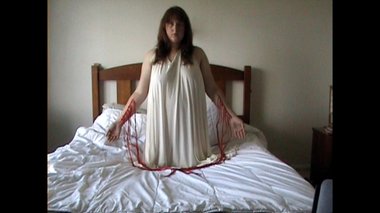

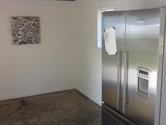


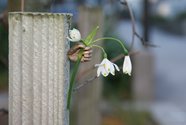


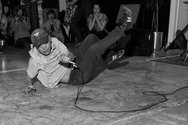
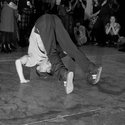
 Two Rooms presents a program of residencies and projects
Two Rooms presents a program of residencies and projects Advertising in this column
Advertising in this column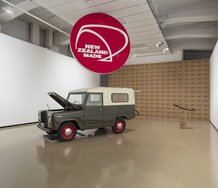
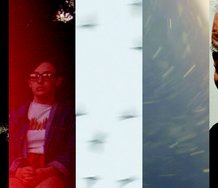
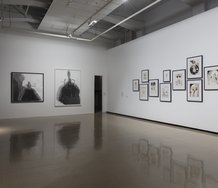
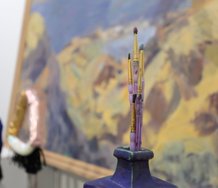
This Discussion has 0 comments.
Comment
Participate
Register to Participate.
Sign in
Sign in to an existing account.